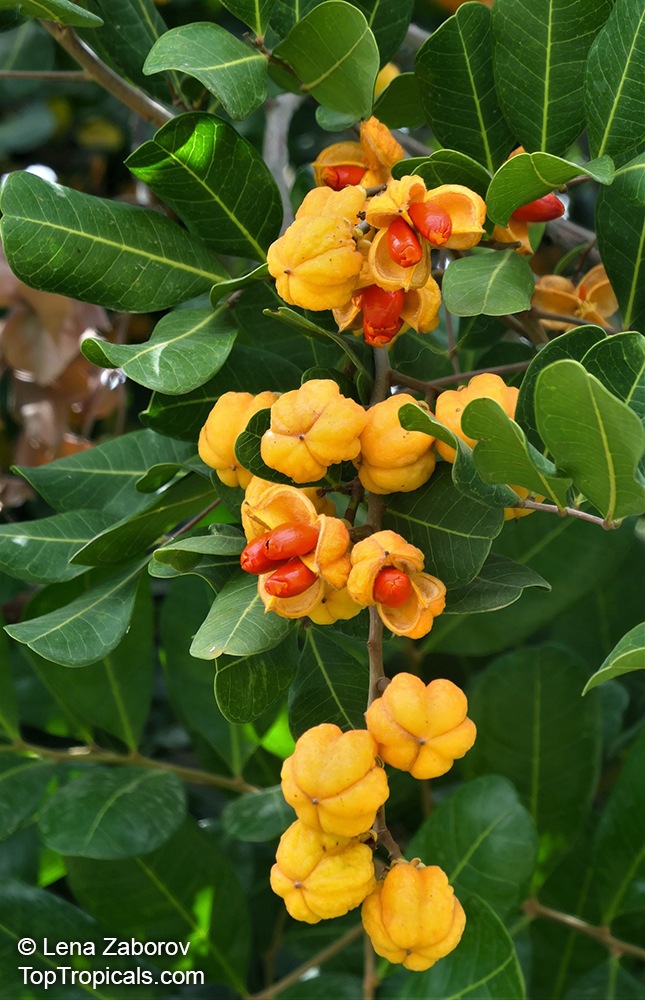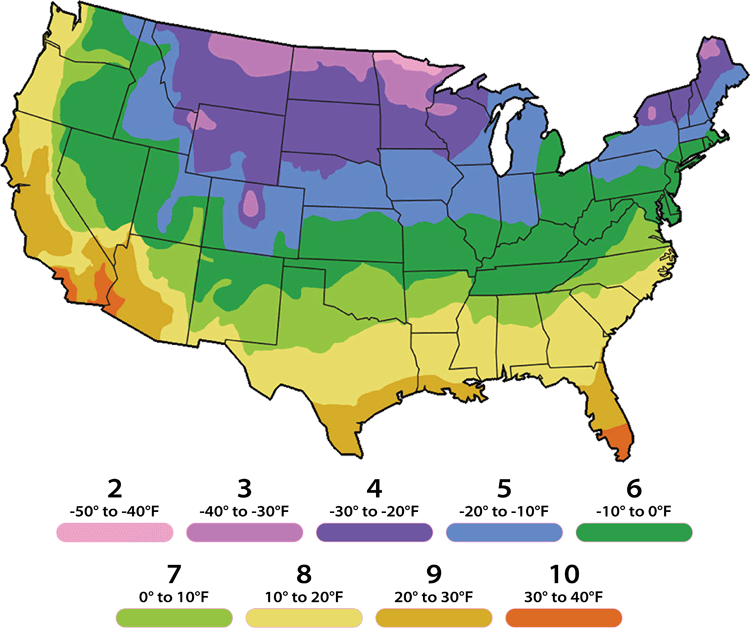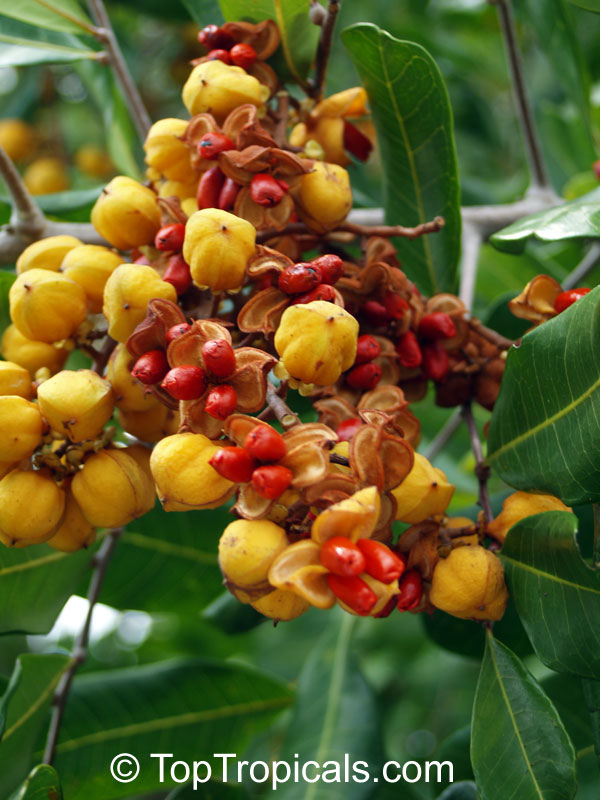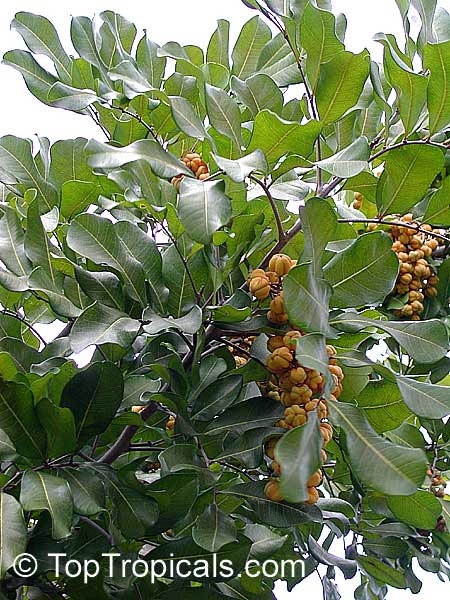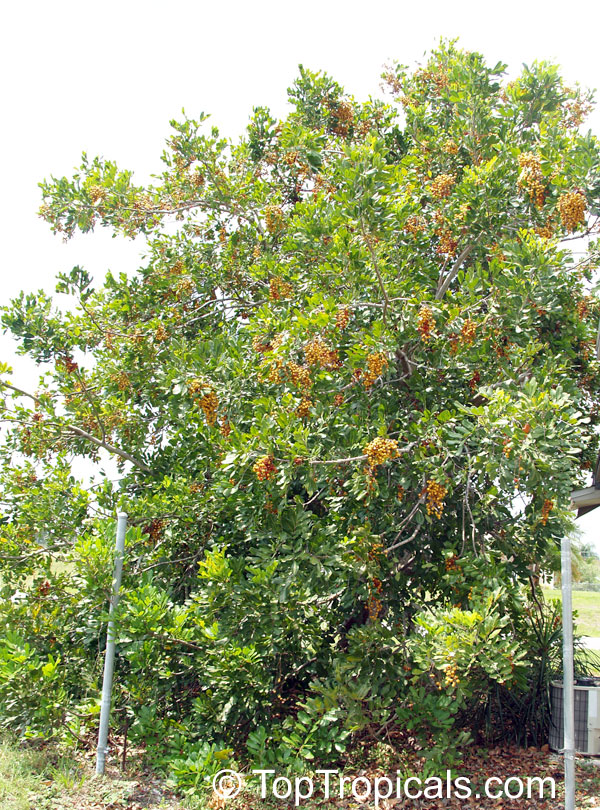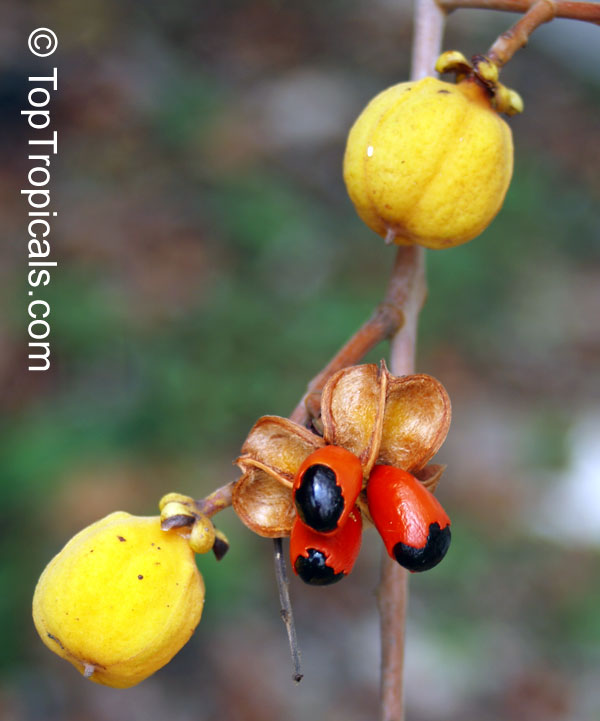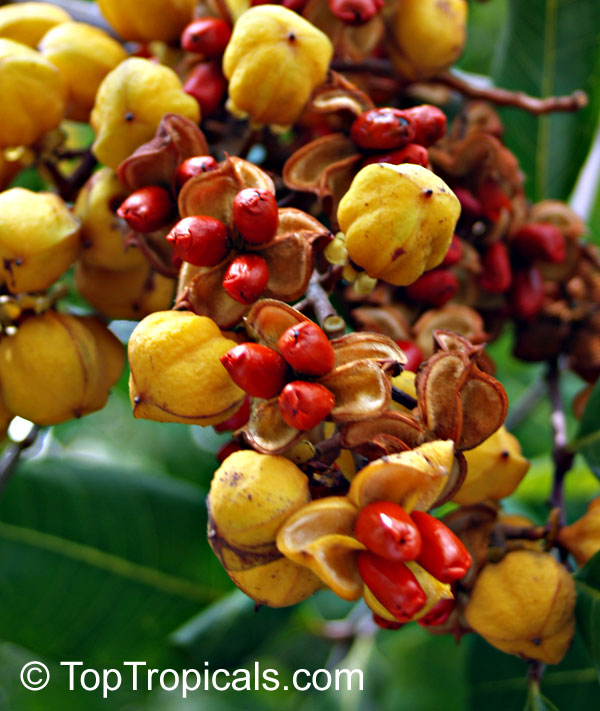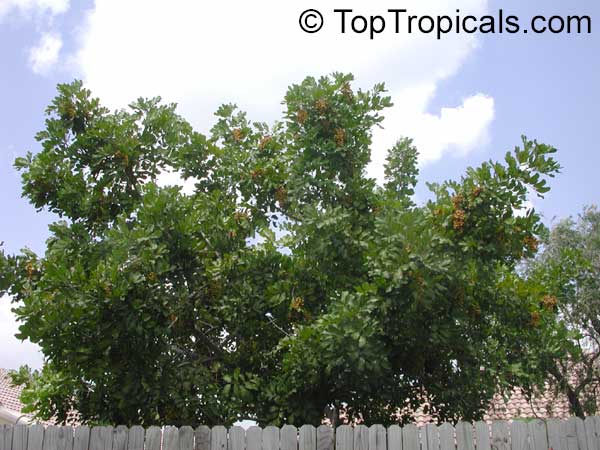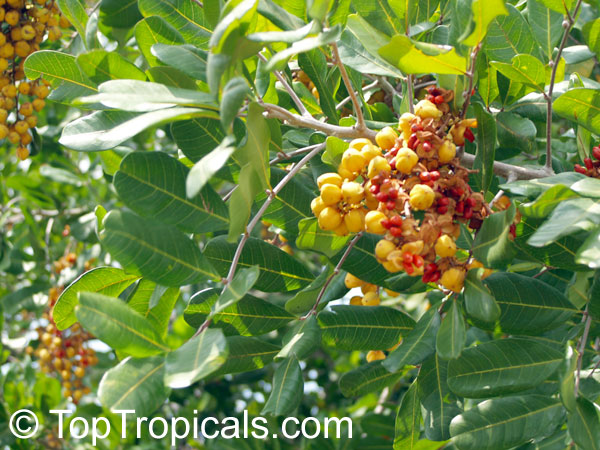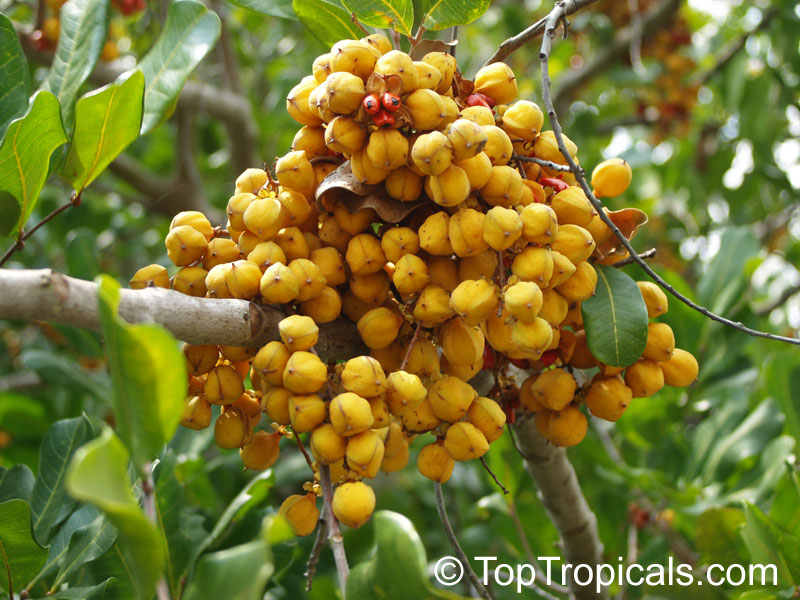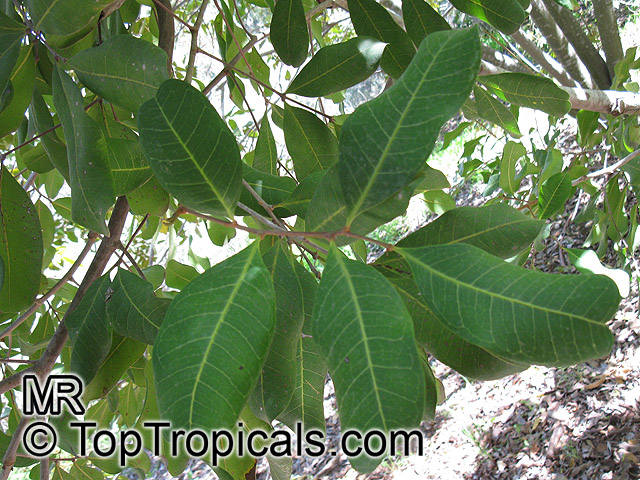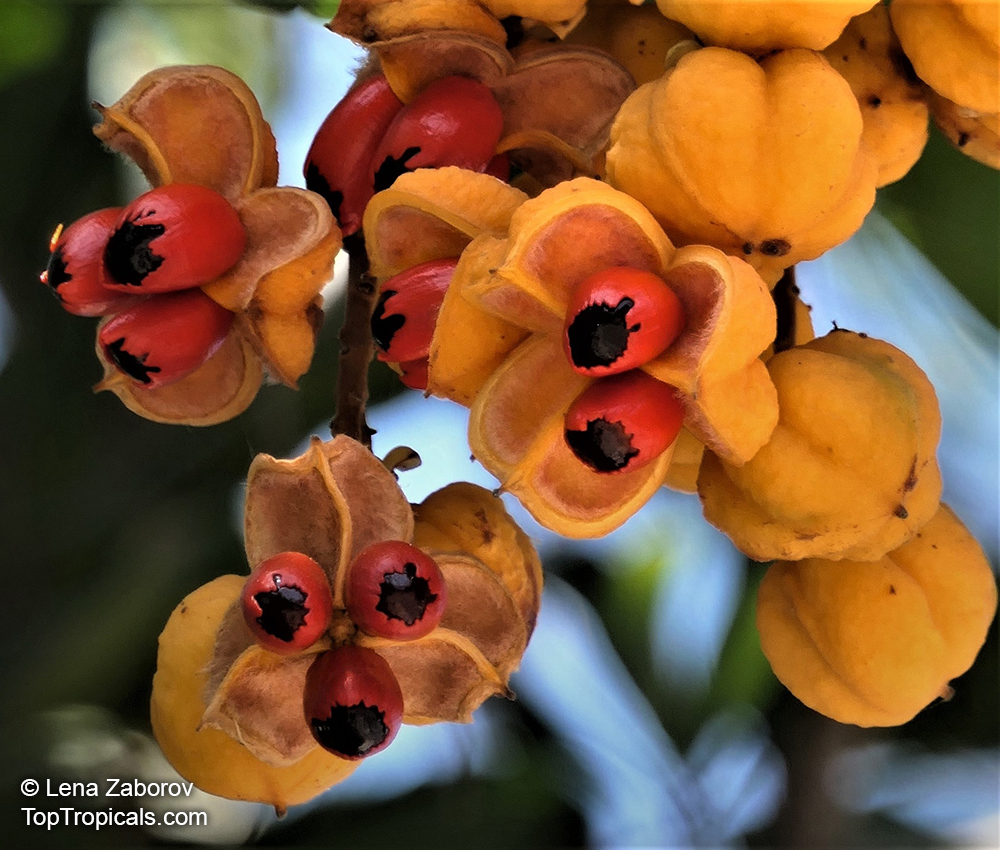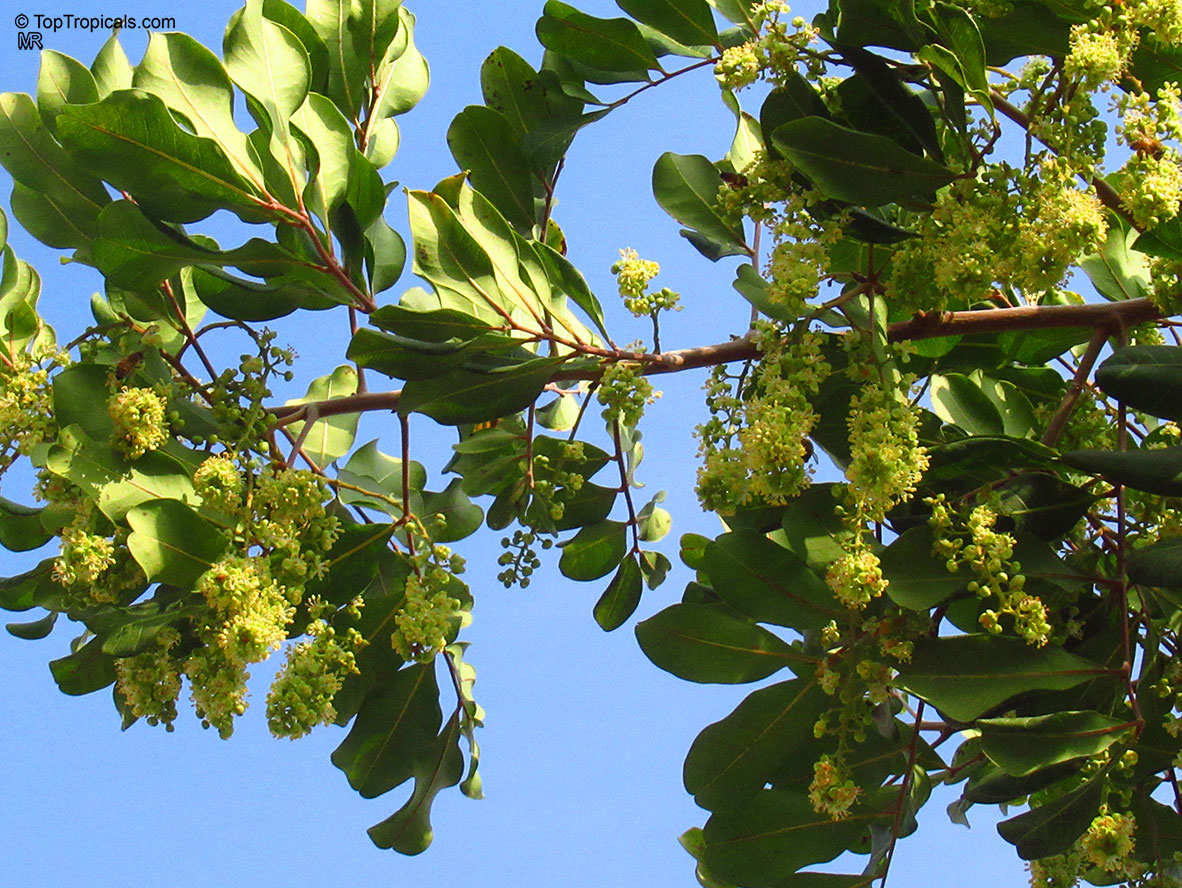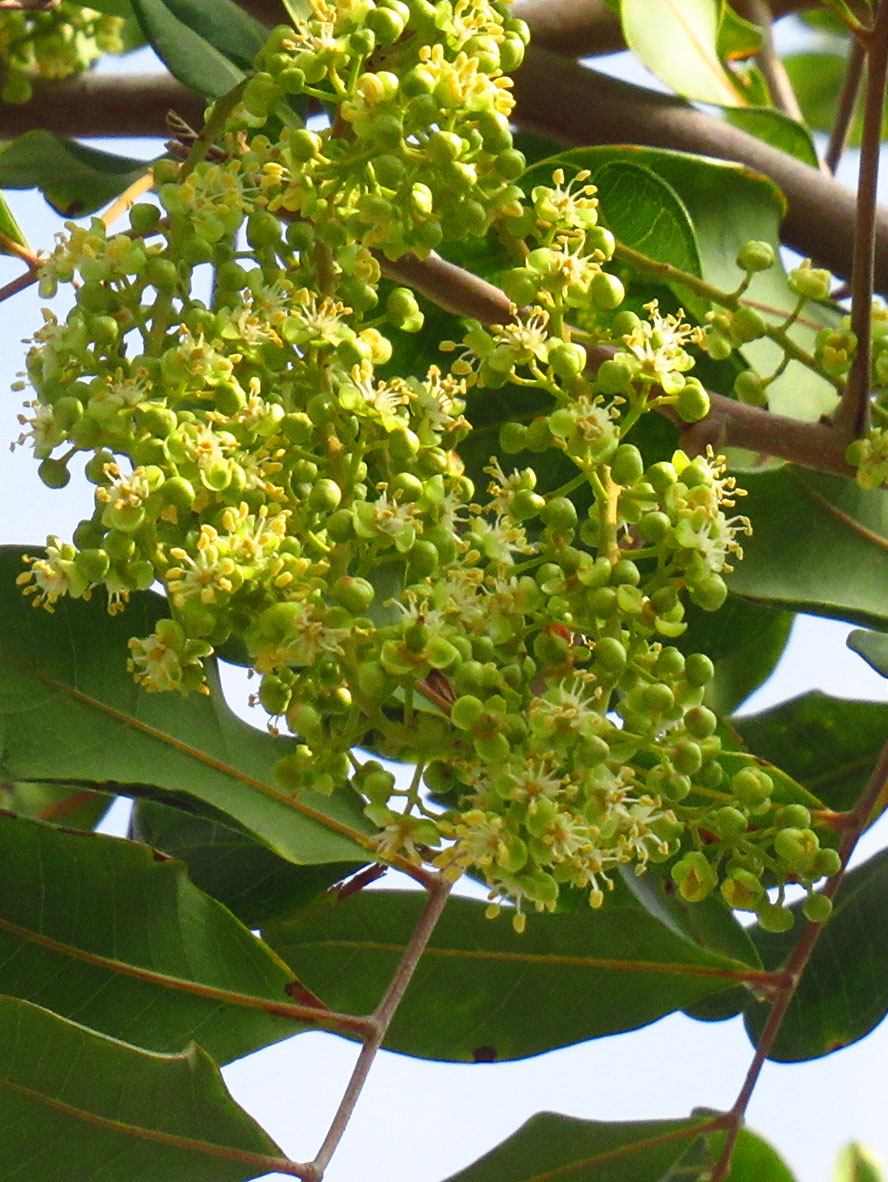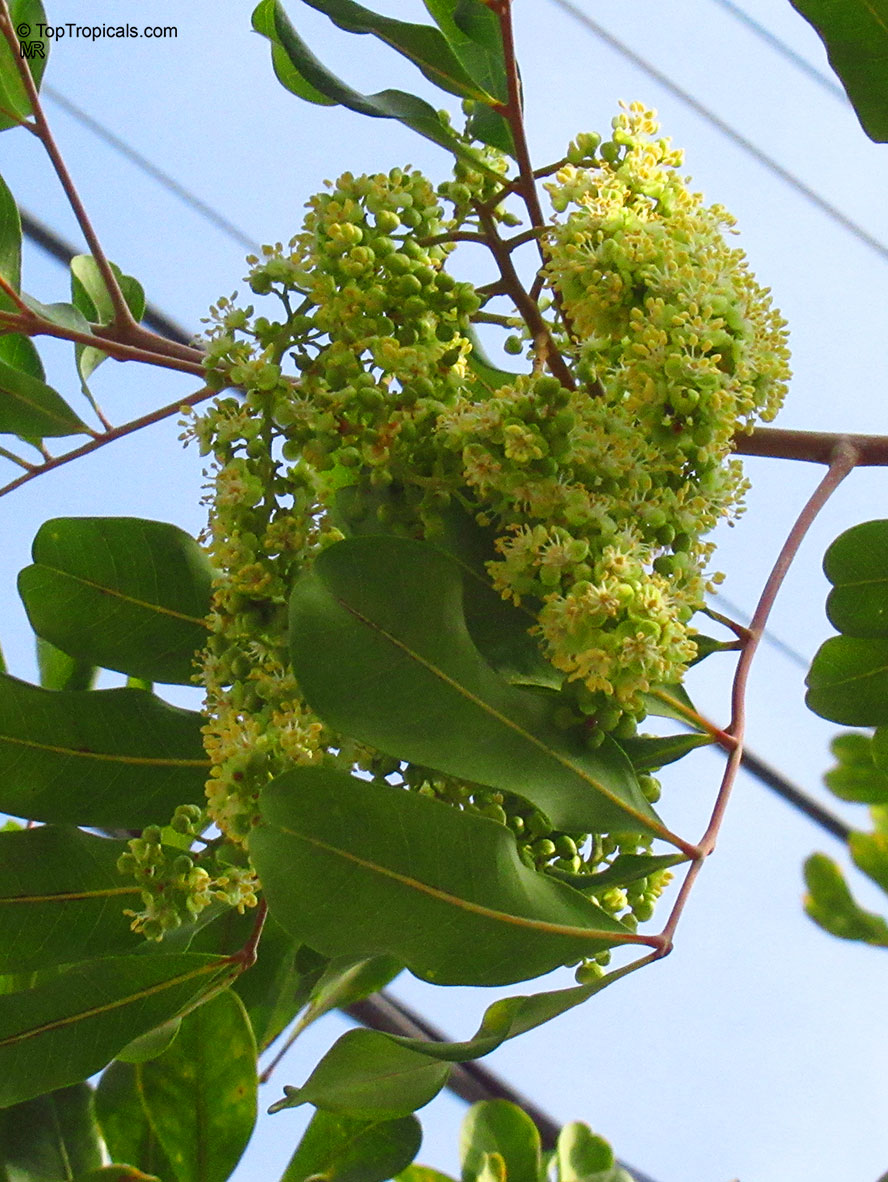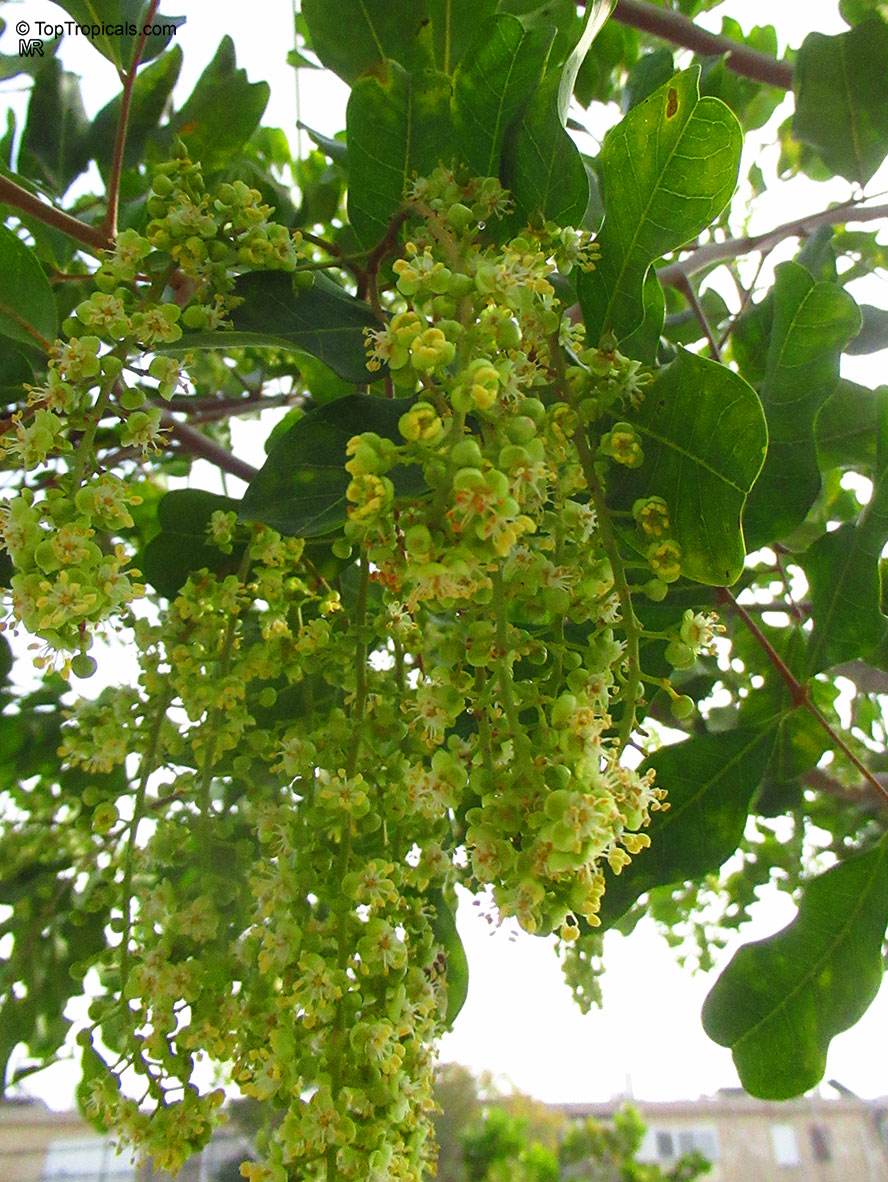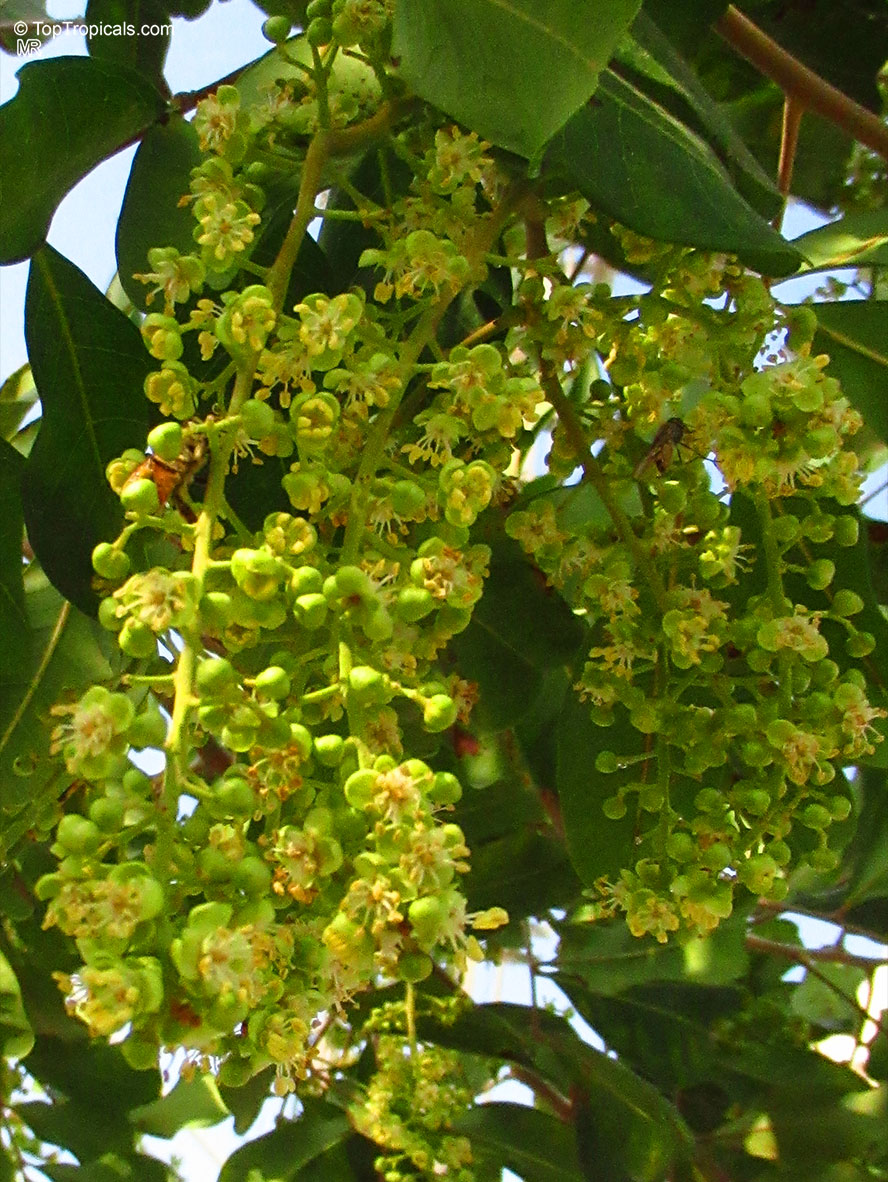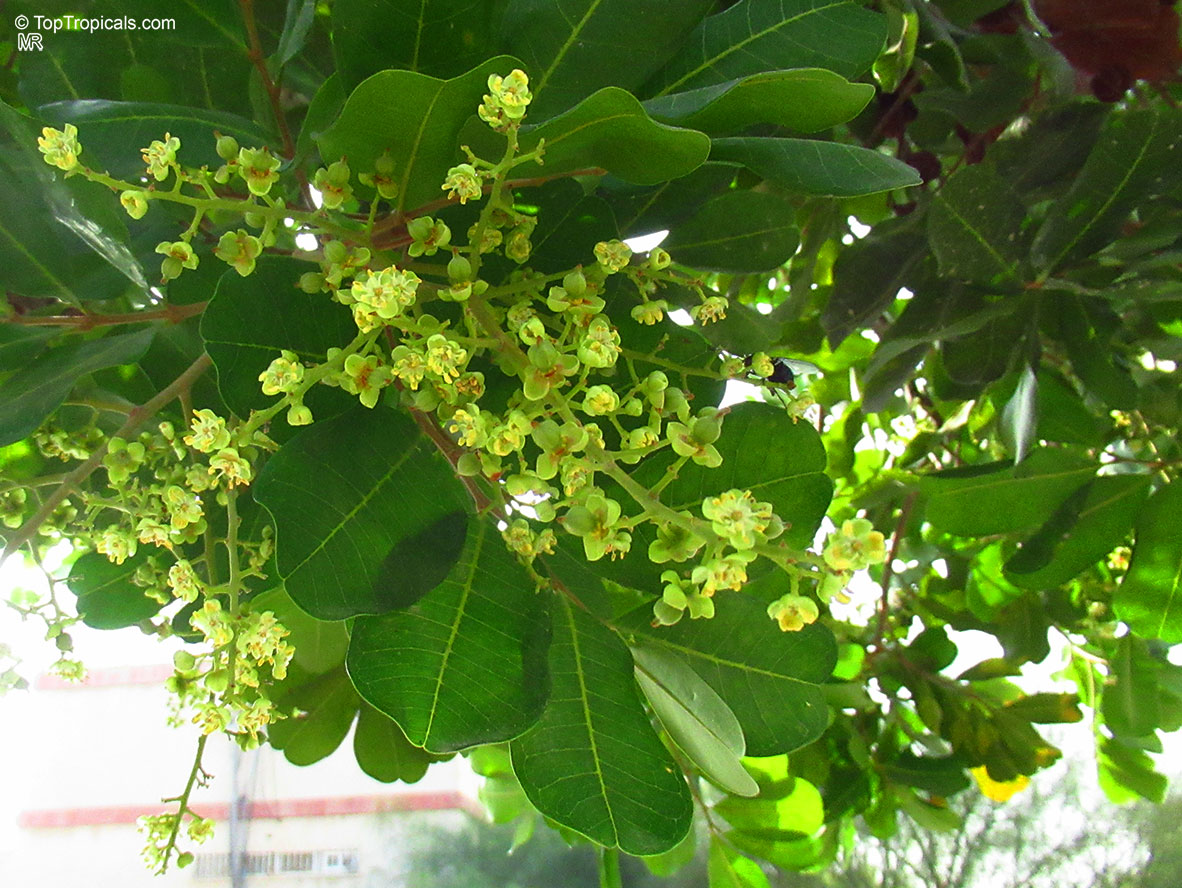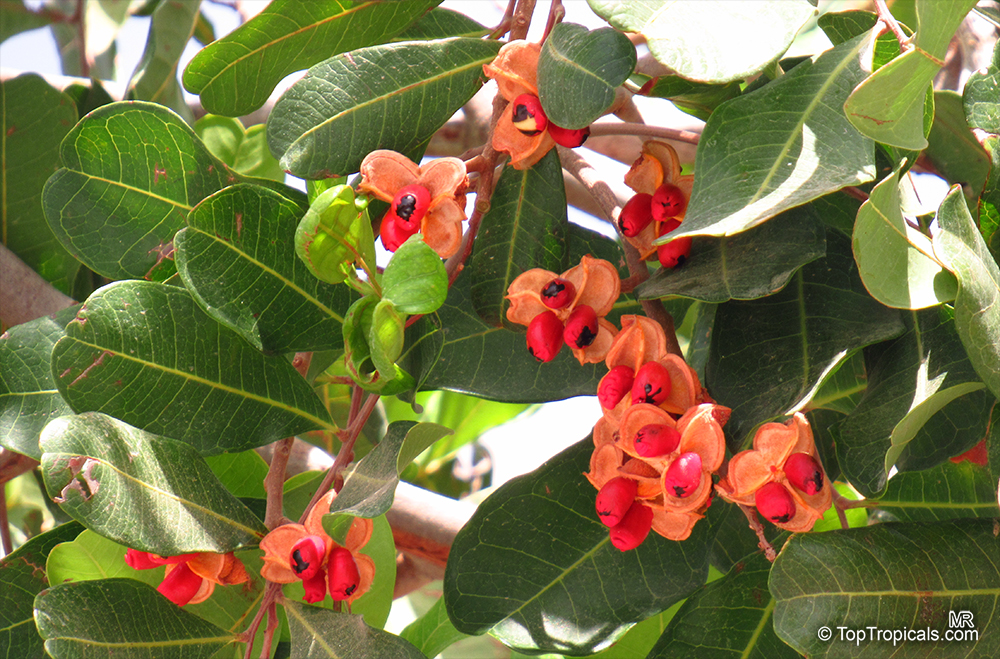Cupaniopsis anacardioides
CarrotwoodFamily: Sapindaceae
Origin: Australia, Indonesia and Papua New Guinea










Grows in full sun, even in coastal areas. You can also grow it in partly shady areas. However, for best foliage and ornamental beauty, plant in full sun. Only moderate water required, making it an ideal choice for low water gardens. It usually grows in a small tree from 10 - 20 feet tall and 12 - 15 feet wide. The pendant oval leaves are gray above and gray-white in color below, with a red margin when fully grown. The foliage is ornamental and adds a lot of character to the tree. Red to crimson, vinous flowers form in clusters on the tips of the branches in spring. It does produce a fruit capsule which attracts wildlife in the garden.
Cupaniopsis anacardioides has it all: beauty and convenience. It's an ideal tree for a sea-side garden, as it is tolerant of flooding and salt plus thrives in mild warm climates. It is tolerant to cold and mature plants can survive down to temperatures of 30°F or lower for a short time. This small tree can be used as an ornamental, screening or windbreak. In colder climates it can also be grown in containers in patio or porch. Plant Carrotwood in full sun and in well-drained soil. Water regularly during the summer and a deep irrigation every 1-2 months during winter, as the plant is low-water requiring. Use balanced fertilizer with micro-nutrients twice in the first year of planting and once a year later. Prune to maintain desired shape and size. Prune in early spring if necessary. Be sure to keep it away from areas with high foot traffic, to prevent any roots from being damaged. Keep the foliage free from dust and debris to maintain its beauty.
Invasive in certain areas, this small tree can easily outcompete native species. Care must be taken when planting to avoid possible spread.
Overall, Carrotwood is an attractive and easy to grow tree with ornamental foliage and stripy red, crimson and vinous flowers. It is known for its tolerance of salty and flooded conditions, so it's perfect for seaside and coastal locations. This slow growing tree requires only moderate water, and will tolerate less with some protection in colder climates.
